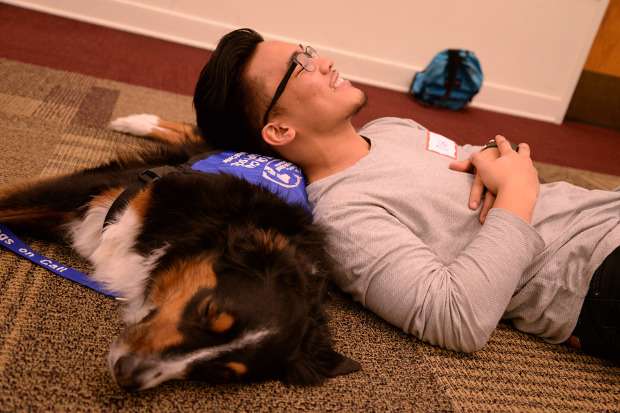You’re probably in college because you want a career after graduation. But to find a position, you need relevant experience – and how do you get experience if you haven’t had a job in your field?
You get an internship, of course. Internships allow you to learn about a particular industry, develop new skills, gain real-world experience, and explore possible career paths. Often, college students can earn academic credit for internships. Recent graduates with at least one internship under their belt increase their chances of obtaining full-time employment: “Employers are much more likely to interview and hire those with work-related experience,” says Renée Beaupre-White, Director of Career Services at Castleton University.
So if internships are so valuable, how do you get one? Here are some tips to help you find the right opportunity for you:
1. ) Start Looking. To learn about opportunities, meet with Jessica Duncan, Director of Experiential Learning and Workplace Readiness. Once she learns about your major, interests, and career goals, she can suggest possible sites. You should also talk to your professors, family, and friends. Once they know you are looking for a job or internships, they may be able to connect you with people at various organizations. Finally, be sure to visit the Job and Graduate School Fair on March 24th in Glenbrook Gymnasium.
2. ) Aim High. Have your heart set on a particular company or organization? “Go for it!” Renée advises. She advises calling the organization to find out to whom you should send your résumé and cover letter.
Do know, however, that while most internships are unpaid, many come with a price tag. You may have to pay for housing, food, and transportation while you gain experience with that trendy advertising agency or cool not-for-profit. Still, Renée advises students to pursue these opportunities. “Sometimes, it means working a part-time job at night so you can afford to have that internship,” she says. “It it will be worth it in the end.” Renée also helps students make their dreams reality. She recalls a student who landed a coveted internship at Ms. Magazine, but feared she wouldn’t be able to afford living in Los Angeles. Renée found a graduate of the college who was happy to let the student sleep on her coach for duration of the internship. “Alumni generally want to help,” says Renée.
3.) Apply Early. Early birds really do get the worm! Renée recommends applying for summer internships between January and April – the earlier the better, especially for competitive organizations. Looking for an internship during the academic year? Apply six to eight weeks prior to the start of the semester.
4.) Be Professional. Work with Renée to perfect your résumé and cover letter and proofread them carefully: careless typos could stand between you and the opportunity of a lifetime! She can also help you prepare for interviews and format professional e-mails. After you’ve submitted your application, follow up with the organization to indicate your strong interest in the position. “Be persistent, but professional,” advises Renée. “If the company’s website says no phone calls, then don’t call. Be sure to follow the parameters.”
So you spend hours perfecting your résumé and cover letter, exploring possible internships, and practicing for interviews. When you finally land an internship, you may feel like celebrating – and you should. But it’s important to remember that being an intern is like having an extended interview. Here’s how you can make a good impression on your internship supervisors:
1.) Stay Professional. “Speak properly to your supervisor and the team: do not use swear words, slang, or gossip,” says Dilan Clements. A December 2016 graduate of Castleton University, Dilan did her internship at Dartmouth’s Weight and Wellness Center. “And just as you dressed nicely for the interview, you should continue to dress appropriate for the position once the internship begins,” she adds. “It’s important to remain professional and businesslike for the duration of the internship.”
2.) Be Flexible – and Expect Challenges. Agree to help with projects and tasks even if they were not part of your initial job description. That includes making photocopies and coffee. “Say yes to everything as no will never move you,” stresses Rénee. Also, anticipate that you may receive less structure and oversight than you have been accustomed to you in your college classes. Dilan recalls her supervisor asking her to create handouts, but providing little context aside from the topic. She had to research the subject, pull out relevant information, and determine the handout’s structure and layout herself. “In college, projects and assignments are broken down step by step,” says Dilan. “This was a great opportunity for me because it pushed me out of my comfort zone and taught me how to plan and conduct research on my own.”
3.) Network – and Learn. “Treat your internship like your first professional job,” says Renée.” Know that the people you meet through your internship can teach you a lot about the organization and the field.: “Ask as many questions as you need to you,” adds Dilan. “The professionals at your internship are there to help you and teach you.” Connections you make during your internship can also help you find employment after graduation. And in some cases, internships lead directly to offers of paid employment. At the end of January, Dilan will start work as a clinical scribe at Dartmouth’s Department of Plastic Surgery. She looks forward to working with “a friendly, knowledgeable, and prestigious group of professionals” and to increasing her knowledge of the health care field.
Jessica, Renée, and Dilan encourage current Castleton students to do at least one internship during their undergraduate years. “Just do it!” advises Rnee. “You’ll gain valuable experience in your field, make connections, have greater career confidence, and just might land a job.”
Dilan urges students to take advantage of Rénee’s warmth and expertise. “I truly believe I would not have gotten the internship without Renée’s help,” she says. “She supported and encouraged me through every step.”
-Dorothy A. Dahm









